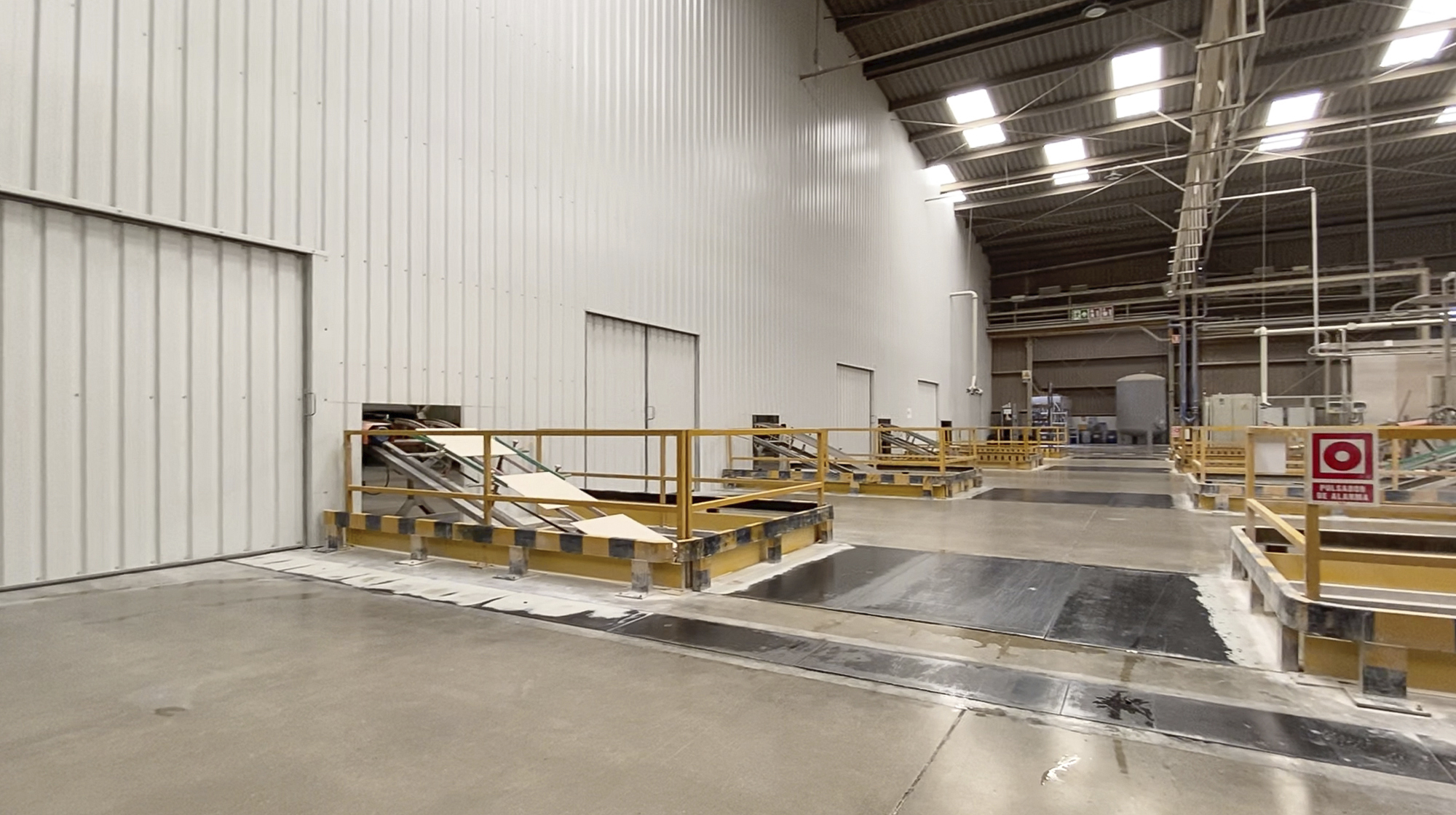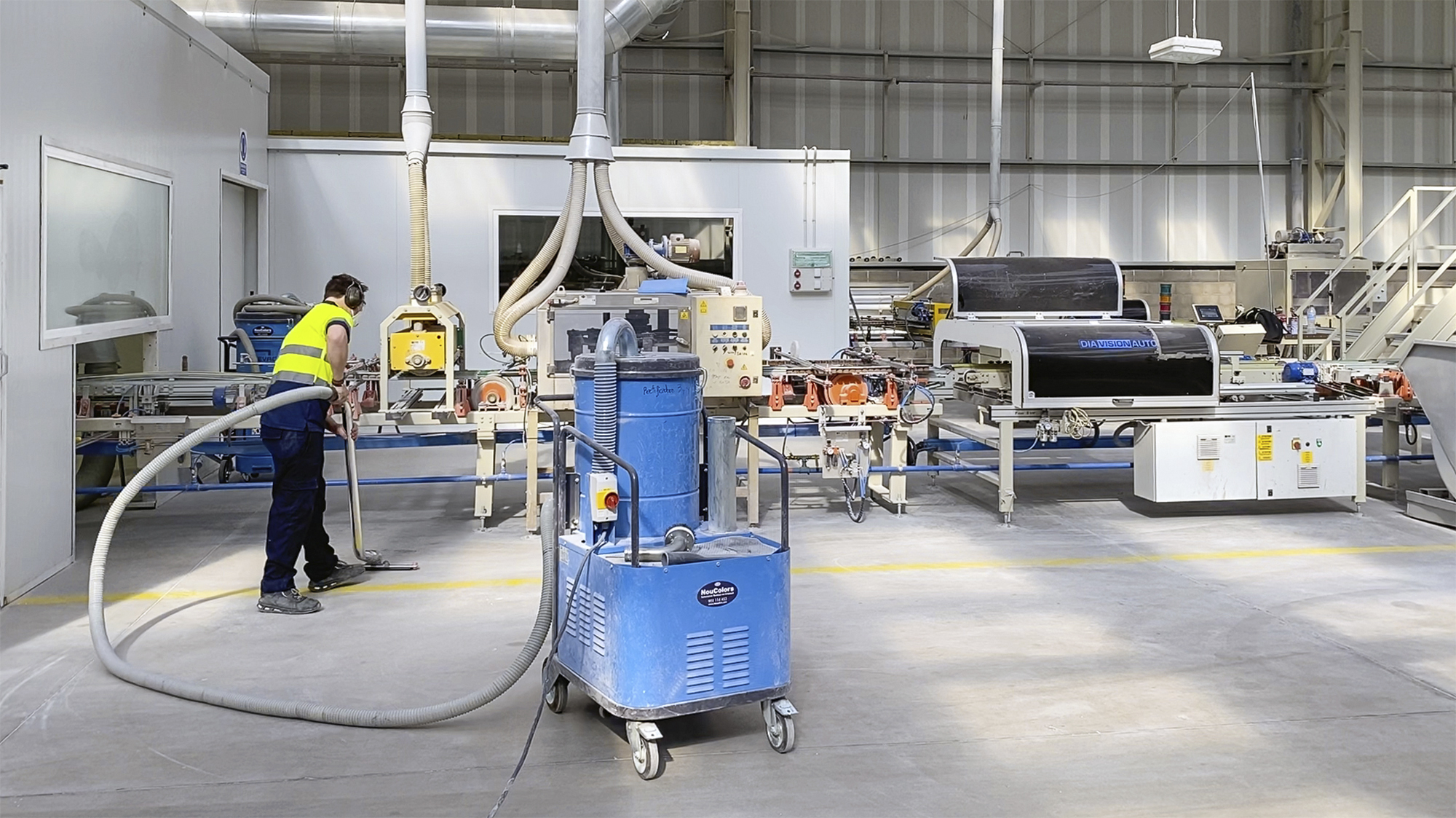Argenta incorporates the protocol against exposure to dust and respirable crystalline silica (royal decree 665/1997)
Video of protocol against exposure to dust and respirable crystalline silica. View on Youtube
Argenta Cerámica S.L. has implemented, in all its plants, the new regulation in Royal Decree 665/1997 on the protection of all workers against risks related to exposure to carcinogens at work.
These carcinogens, mainly RCS (Respirable Crystalline Silica), can cause irreversible lung damage. It has now been connected to lung cancer, so RCS dust is considered a carcinogen and an environmental exposure limit of 0.05 mg/m3 has been set.
Argenta Cerámica has taken the initiative and has applied the following measures as one of the first ceramic companies to prevent these risks:
1. ACCESS RESTRICTION. Access to presses and rectification machine sections is restricted only to authorised personnel, as the processing areas are considered the focal point of RCS.
Access to presses and rectification machine sections is restricted only to authorised.
2. AIR SHOWERS. Workers must always take care of their personal hygiene, so before entering communal areas, air showers are used to remove as much dust from clothes as possible. They have an extra 10 minutes before lunch and before the end of the working day to do this.
Air showers are used to remove as much dust from clothes as possible.
3. LAUNDRY SERVICE. It is very important for workers to shower thoroughly and change their clothes when the working day is over to avoid taking dust and RCS home.
Clothing used in the workplace, considered the work uniform, is only used at the workstation and is left for cleaning in the bins provided at the changing room entrances. It is prohibited for workers to take such clothes home to wash. In addition, workers are provided with clean clothes in the “Clean Changing Room”. Each worker has their own locker and set days for delivery of clean clothes by the laundry service.
4. TWIN LOCKER CHANGING ROOMS. Work or protective clothes are kept separately from personal clothing to minimise contact. A twin locker system has been provided to achieve this.
5. DEMARCATED EATING AREAS. It is prohibited to eat and drink in work areas where there is a risk. Eating areas have been provided in each Argenta production plant.
6. SUCTION SYSTEM USING INDUSTRIAL MACHINES. Continuous and selective suction systems have been set up in contagion areas to prevent continuous exposure during work hours. In addition, the cleaning and maintenance service always performs its work using suction, avoiding sweeping as that could leave suspended particles and increase the risk.
Continuous and selective suction systems.
7. CONTINUOUS PROVISION OF PPE. PPE is provided continuously (facemasks, gloves, goggles, etc.) and changed whenever its protection decreases.
8. ANNUAL MEDICAL CHECK-UPS. A system to prevent risks with annual medical check-ups has been incorporated. In addition, the “health monitoring protocol specifically for workers exposed to silicosis and other pneumoconioses” has been applied to all production workers.
9. ONGOING TRAINING IN PREVENTION OF RCS RISKS. Ongoing training in RCS risks and workplace risk prevention is provided. In addition, an external hygiene study has been conducted on exposure to dust and RCS at all production workstations to find out and draw up the necessary prevention measures.

















